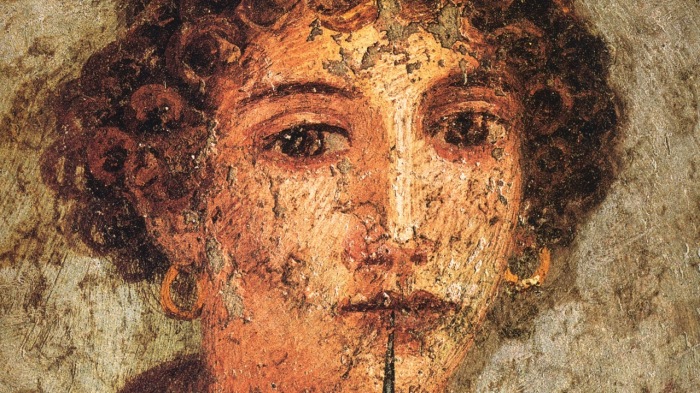
A few months ago I participated in a conference centered on the theme of humility at the University of Michigan, Ann Arbor. And ever since I have been thinking a lot about humility, its nature as a virtue, its problematic tendencies. One the one hand I do feel, as I’m sure a lot of us do, that humility is rather under-valued—not to mention difficult to find—in American life today. On the other hand I suppose I am enough of a Nietzschean to feel that there is something a bit off-putting about this alleged virtue. (Or perhaps a Humean – it was Hume, after all, who famously disparaged humility as a “monkish virtue.”) Doesn’t humility involve putting ourselves down? Doesn’t it conflict with pride, and with confidence, both of which, surely, do have some positive value, at least when appropriately felt and expressed? Moreover, doesn’t humility involve pretending to think worse of ourselves than we really do, thus committing us to dishonesty and insincerity?
Perhaps I find humility particularly perplexing because the first person I think of when I think about humility is Socrates, and in particular the Socrates of Plato’s Apology. The Apology, as I read it, is all about humility, and in particular about intellectual humility. Of course, it is also about courage. Socrates displays a magnificent courage throughout that dialogue; he stands firm against his accusers, indeed he achieves a majestic role reversal, becoming the accuser of his accusers, putting on trial those who have brought him to trial. He so mercilessly goads the Athenian jury that he practically forces them not only to convict him but to condemn him to death, even as it is obvious that there were a great many things he could have done—falling on his knees and begging for mercy, promising never to practice philosophy again, proposing exile as a penalty during the sentencing phase—that would have saved his life. Socrates’ own explanation of his courage—and this, really, is the heart of the Apology—is that it is grounded in humility. He does not fear death, because he is humble enough not to pretend to know what he does not know; not knowing what death is, or whether it is a good or a bad thing, he thinks it not only unreasonable but unvirtuous to fear it. (He shows his humility in other ways, too. In particular, contrary to the claims of his accusers, he refrains from asserting grand metaphysical claims about the nature of the universe and such. How would he know such things? In this, it is worth noting, he differs greatly from the Socrates of Plato’s later dialogues, who—serving as Plato’s mouthpiece—is happy to assert sweeping and speculative metaphysical positions.)
Socrates’ complaints against his accusers, and indeed against the Athenians in general, are more than anything else directed toward their lack of humility, their insistence that they understand things they clearly do not understand. Socrates has spent his life exposing such pretenders (and thereby made a lot of enemies). He points out that the Athenians as a whole spend little time or energy on self-reflection, let alone self-criticism. They have settled for a deeply inadequate theory of the good life, one that focuses on reputation and worldly wealth and neglects both inquiry and virtue. They act as if they possess a fully adequate understanding what it was to live a good human life; yet—as is so easily demonstrated—they have given barely any thought to that matter at all, and all they have to offer on the subject are banal clichés.
The thing is, though, that the Socrates of Plato’s Apology does not strike us as a humble man. He is prideful. Indeed, he is arrogant. He goads the Athenians, and he looks down on them. He tells them that no one has served the city as well as he, that they will likely never find a man as good as him to replace him, that a fitting “punishment” for his lifetime of service to Athens would be to be feted in the Prytaneum. His so-called “human wisdom” consists in his knowing how little he knows; but he accepts the claim of the Oracle at Delphi that, precisely because he knows how little he knows, he is the wisest man in Athens. And it is clear both that he takes great pride in this and that he holds his fellow Athenians in a certain degree of contempt.
I find this combination of humility and arrogance—a combination where the two seem not merely to exist side by side (human beings are complex, as we know, and can contain multitudes), but to be intimately linked—quite fascinating. And every once in a while I come across another example of what seems to me the same combination. Nietzsche, at times, seems to exhibit it. My favorite contemporary example is the novelist John Banville. In an interview with the Paris Review,[1] Banville was asked, “Do you really hate your own novels?.” He responded, “Yes! I hate them. I mean that. Nobody believes me, but it’s true. They’re an embarrassment and a deep source of shame. They’re better than everybody else’s, of course, but not good enough for me.”
Perhaps Banville was simply making a joke. I don’t think so. I think he meant what he said, that while he was probably exaggerating a bit for effect—I am not convinced that Banville truly believes his novels are better than those of any other contemporary writer—he was being, for the most part, sincere. I would say, too, that he is one of the few contemporary writers who could get away with saying such a thing. He is a brilliant writer. And it matters, in this context, that he is a brilliant writer, because the remark, made by any lesser artist, would not mean the same thing and would not be interesting at all. It would be an expression of misguided arrogance, and nothing more. Whereas, coming from John Banville, the statement seems to represent something quite different: a sincere attempt to come to grips with the recognition that a given body of work might simultaneously be, on the one hand, among the best that is being produced, and on the other hand, deeply disappointing.
But isn’t it arrogant to be disappointed in what one acknowledges to be the best there is, to hold oneself up to inhuman, godlike standards? Isn’t this, in itself, really just an indirect way of complimenting oneself, of saying, I believe myself to be capable of such greatness that I hold myself to standards the rest of you could not possibly aspire to, perhaps could not even conceive. When Banville says that his novels are “not good enough for me,” the clear implication is that they would be good enough for the rest of us—isn’t it?
Perhaps, though, this is to focus in the wrong place. Perhaps Banville’s dissatisfaction with his own work is not so much a reflection of his view of his own capabilities, but rather a principled dissatisfaction, the kind of determination that moves even the greatest artists—and, perhaps, the most admirable moral saints—to be unsatisfied with what they have done, no matter how impressive it is. Perhaps it is what moves them to keep trying to achieve on a completely different, even unprecedented level. (Many notable altruists, too, have been profoundly dissatisfied with their contributions to the world, despite the fact that they have sacrificed and accomplished far more than the rest of us.) Viewing things from this angle may encourage us to adjust the way we think about humility, to think of it as being naturally and directly opposed not so much to pride, or even arrogance, but rather to complacency. We might take a view, that is, that resists defining humility as having a low assessment of oneself and one’s abilities, or anything of the sort, but rather equates it with a tendency to be, as a matter of principle, perpetually unsatisfied with oneself and one’s abilities, and to be committed to developing and improving them.
One way to fail to be humble, then is to be fully satisfied, to the point of complacency, with oneself as one is: to feel that one has achieved enough, has contributed enough, has achieved a sufficiently comprehensive and sophisticated understanding of the world, etc. (This, again, is the failing Socrates sees everywhere around him in Athens; if we look, we may find it everywhere around us, and inside us, as well.) Exhibiting this kind of humility seems fully compatible with holding a realistic assessment of one’s own achievements—even if you happen to be a genius or a saint, a John Banville or a Socrates. It does not require arrogance; it may, indeed, undermine arrogance, and whether or not it does so it will surely help prevent one of arrogance’s most harmful effects, which is to encourage us to so love ourselves as we are that we become reluctant to admit that we might sometimes be wrong or that it is possible for us to improve and important that we do.
As someone who works in higher education, thinking about humility in this way not only helps me appreciate its value, it helps me appreciate how endangered it is in our current cultural environment. Students need a sense of the world’s vastness and complexity, a sense of how much there is for them to learn, if they are to prosper in university. Without this sense they will miss the fact that university is a site for exploration, a place that offers myriad possibilities for becoming a fuller, more complete person, and a place at which their goals and desires can not only be sharpened and deepened, but altogether altered, perhaps even discarded in favor of new and better goals and desires. But the dominant model of education, and of American life, does not encourage such a sense. Rather, students often arrive at university with a set of pre-established goals they are rigidly committed to, deeply inclined to discount the possibility that they might learn there something that will reshape their sense of who they are and what they might want out of life. Approaching the university as consumers—which is how today’s university administrators for the most part seem to think of them—they are seeking not self-improvement or self-development, but a well-defined product to fit into a pre-defined and often shallowly conceived slot.
Many incoming university students, moreover, tend to have absorbed an attitude of radical egalitarian neutrality that has led them to think not only that everything they might study and pursue at university is equally valuable (so long, that is, as it contributes to their career goals) but also that all views and opinions are equally valid, regardless of why one accepts them or what one has to offer in support of them. Indeed, a great many people in our society suffer from this, both inside and outside the university. It is difficult for people who have accepted such attitudes to believe that they have anything to learn at university – or, for that matter, anything to learn from open conversations with their fellow citizens, or by reading newspapers whose viewpoints they are not guaranteed already to agree with. It is difficult, in such an environment, for people to take seriously the idea that their beliefs, and their ways of forming and evaluating beliefs, might be improved—and, in particular, improved by encounters with people who come from different backgrounds or have different commitments and beliefs. What recognizing this requires is, precisely, a certain sort of of humility. It would be good for us to find ways of teaching and encouraging this kind of humility, because the fact that it is in such short supply is, it seems to me, a major contributor to bleakness of the situation we find ourselves in today.
[1] https://www.theparisreview.org/interviews/5907/john-banville-the-art-of-fiction-no-200-john-banville
Troy Jollimore holds a PhD in Philosophy from Princeton and currently teaches at California State University, Chico. He is the author of three books of philosophy, including Love’s Vision and On Loyalty. He is also the author of three collections of poetry: At Lake Scugog, Tom Thomson in Purgatory, which won the National Book Critics Circle Award for poetry, and Syllabus of Errors. He has received fellowships from the Stanford Humanities Center, the Bread Loaf Writers Conference, and the Guggenheim Foundation.


![]() Subscribe
Subscribe
